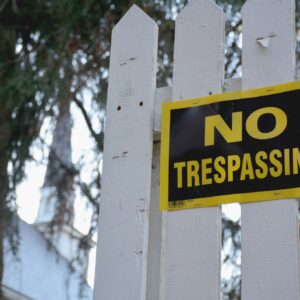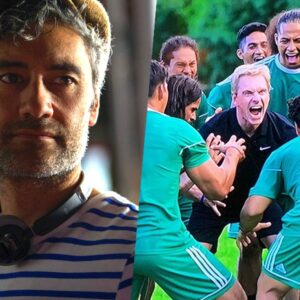Ryan McMahon is an Anishinabe comedian and writer from Couchiching First Nation in Treaty 3 territory. He tours all over Turtle Island and makes the Red Man Laughing podcast. CBC has just finished taping a special with him in early February. He’s coming to Six Nations next week.
I first saw Ryan do a stand-up set at a packed East Vancouver café. His story of being kept in line by his moose-hide-slipper-wielding Kookum brought the house down.
I met up with Ryan while making my documentary “End of the Dial” about the future of radio in a digital world. Since I was a kid, I’ve listened to local, indigenous radio. There’s a station in practically every community. I grew up in the north, hearing the news in Dogrib and Slavey.
Ryan also loves radio. We chatted while he was getting ready to record an episode of his podcast, that he calls his “ugly little baby on the internet.” He taped it in front of an audience at the 2013 Vancouver Indigenous Media Arts Festival with Dogrib writer Richard Van Camp, activist Melina Laboucan-Massimo (Lubicon Cree) and Klee Benally, vocalist for Blackfire, a Navajo punk band.
Back in the day, Ryan used to do a live call-in show for NCI FM, a Manitoba station broadcasting aboriginal language and cultural programming. His character, Clarence Two Toes, would spin country music and take calls. I wanted to know if radio was always important to Ryan.
“I don’t want to say it was 1950 and we huddled around a campfire with an AM transistor radio or anything, but certainly, when we were at the lake or at the hunting shack we would get late night radio or we’d get hockey games on the radio when we were on the trap line. Our first mix tapes as teenagers came from dubbing off of the radio. And so my love for radio and more importantly maybe in my work as a comedian, my love for vaudeville, it goes back to old timey radio.”
Ryan’s gigs and podcasts are pretty hilarious. But he also addresses serious issues, interviewing indigenous leaders and artists such as Assembly of Manitoba Chiefs, Grand Chief Derek Nepinak and the 1491s.
Ryan chooses the words of his podcasts very carefully. He says its like writing a film script or screenplay for TV.
“I want to tell you how it smells, I want to bring you to the floor, bring you to the bush, to the trapline, I want to bring you to the lake. There’s a reason why I’m telling you this story. I really try to come to the conversation in a one-on-one, intimate kind of way. If there is something I haven’t researched, I want you to tell me and teach me, so that the people who are listing to this, who may not have the answers, get to gain that same knowledge.
“If we talk about colonization or cultural reclamation and these things, they deserve a little bit more time than your 15 minute bus ride. So sometimes the podcast can go 90 minutes, I’ve had 2 ½ hour chats and interviews with people.
I asked Ryan how making a podcast in his bedroom feels compared with the more elaborate productions he’s done for TV and radio.
“This is a little too romantic maybe, but it really gives me a reason to wake up in the morning, sometimes, you know, I get excited about sharing this guest with my listeners and I get excited about question their points of view. And working through some difficult topics, especially in today’s political climate.
“One of the beautiful things about radio is that it’s not 140 characters; there is space for stories still. We probably are in greater danger that we understand in terms of losing this medium if we don’t take time to appreciate all the things it offers us.
“No matter where I go, coast to coast to coast, down through the United States or Canada, there’s always a rez radio station. Its local and its your cousin running it and radio is so important to us as native people because you can break up with old man on the radio, you find your lost dog, you can sell your car, you can play bingo, you can even bum a smoke from your neighbour over the radio. It’s a local thing, worth fighting for.”
Ryan will be playing in Six Nations on February 18th.
My discussion with him will be featured on “End of the Dial” on CBC Radio One on February 13, at 9:00pm.
Garth Mullins is a writer, broadcaster, activist and musician living in East Vancouver, on the Salish Sea.
Follow him on Twitter @garthmullins













Comments are closed.